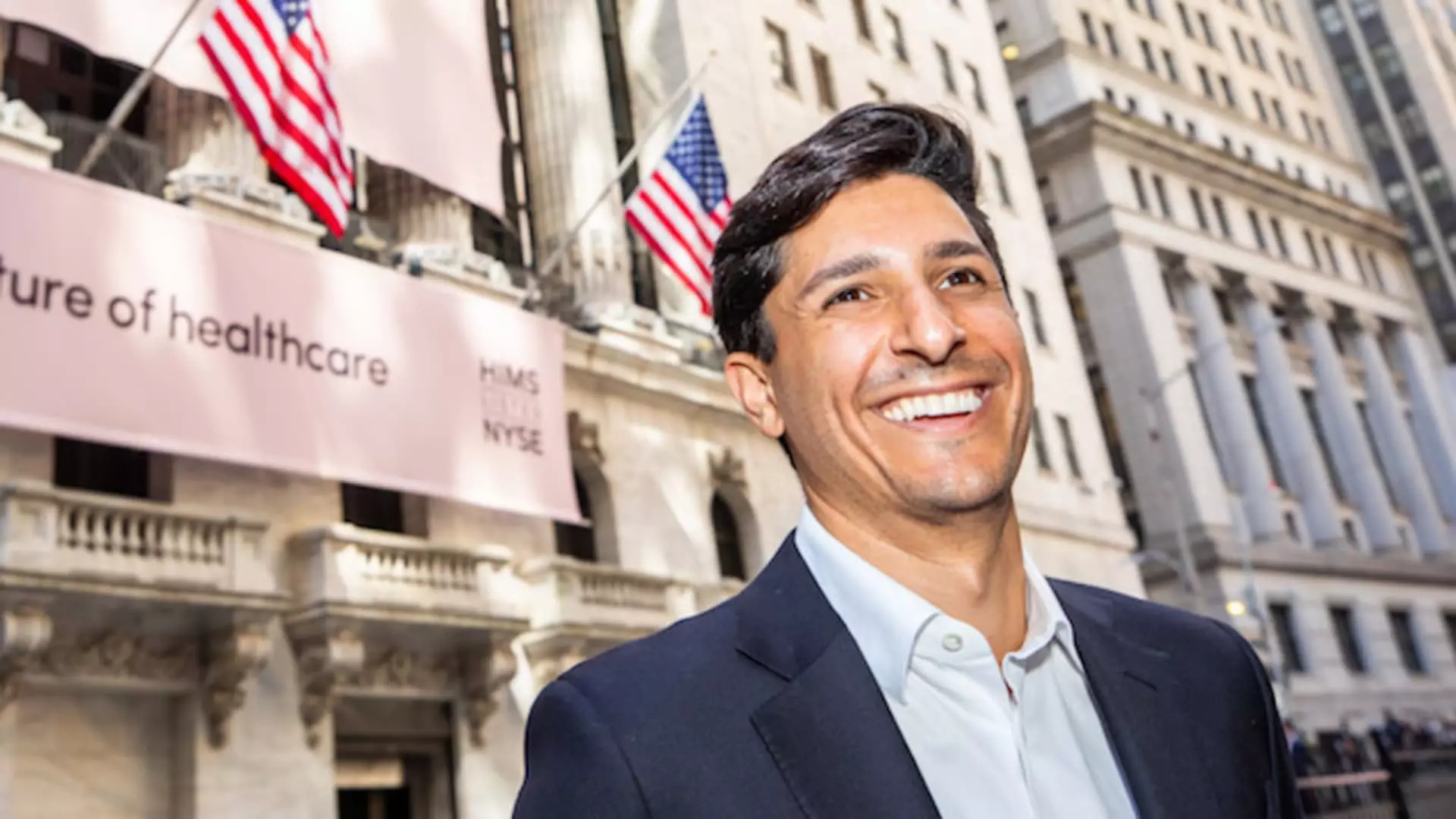In the face of a rapidly evolving healthcare landscape, companies are increasingly leveraging their influence to align themselves with political parties, particularly during pivotal moments like presidential inaugurations. A recent example involves Hims & Hers Health, a direct-to-consumer healthcare provider, which made headlines for donating $1 million to President-elect Donald Trump’s inaugural fund. This move reflects broader trends within the tech industry where companies are not only invested in their products but also in the political climate that can impact their operations and future growth.
The decision by Hims & Hers to support Trump’s inauguration is emblematic of a growing trend where healthcare companies are seeking to create strategic alliances with the government. Political contributions are often viewed as investments in the regulatory environment that will shape the future of the industry. With this $1 million donation, Hims & Hers joins a varied roster of tech titans including OpenAI, Amazon, and Meta, each of whom have made similar contributions with aims of gaining a favorable standing in the forthcoming administration.
This practice raises pertinent questions about the motives behind such donations. While companies may publicly frame their contributions as support for advancing healthcare policy, critics argue that it is often a tactical maneuver to secure advantageous legislation or access to decision-makers. Through these seemingly altruistic gestures, businesses hope to gain influence over healthcare reforms that may affect their revenue streams, particularly in sectors that offer lucrative therapeutic alternatives.
Hims & Hers has carved out a niche in the digital health sector by emphasizing solutions for conditions like weight loss, erectile dysfunction, and hair loss. Their quick ascendance in the market was no small feat, particularly following the introduction of compounded semaglutide in their weight loss program. This treatment option presents a cost-effective counterpart to high-priced medication alternatives, thereby addressing a significant consumer need.
However, the landscape for compounded GLP-1s, like semaglutide, remains fraught with uncertainty. The credibility of these medications can fluctuate based on political sentiments, which makes Hims & Hers’ sponsorship of the inaugural fund even more strategic. In a climate where opinions on GLP-1s are divided, aligning with political figures who can influence policy decisions amplifies the company’s advocacy for wider acceptance and lower costs for these medications.
The political affiliations and backgrounds of key administrative appointments can further amplify these dynamics. Trump’s selections, including Robert F. Kennedy Jr. for the Department of Health and Human Services and Dr. Marty Makary for the FDA, signal an ambiguous stance on various medications and treatment regimens. Kennedy’s skepticism regarding GLP-1s underscores the lack of consensus in the healthcare community about the best approaches to combat obesity. While he acknowledges that such medications have a place, he emphasizes lifestyle intervention as the primary strategy.
Conversely, Makary’s previous association with telehealth initiatives, particularly those prescribing GLP-1s, presents an opportunity for Hims & Hers to influence policy discussions and highlight the benefits of their offerings to a skeptical audience. The interplay of these appointments illustrates just how closely monitored health policy can impact the strategies of healthcare innovators.
As Hims & Hers signals its readiness to engage with the new administration on promoting its medications, the future of this collaboration remains to be seen. The outcome could lead to either enhanced business prospects for companies providing similar treatments or contribute to heightened regulatory scrutiny. Elon Musk’s vocal support for making GLP-1 inhibitors accessible reflects an industry sentiment favoring more affordable healthcare solutions.
Hims & Hers’ political donation is a calculated step in a multifaceted strategy aimed at securing a favorable regulatory environment. As the digital health sector continues to grapple with changes brought about by these political shifts, it becomes imperative to remain vigilant about the intersection of healthcare innovation and political influence. Understanding this dynamic is crucial not only for the companies involved but also for consumers and policymakers who must navigate the complexities of health access and affordability in America.

